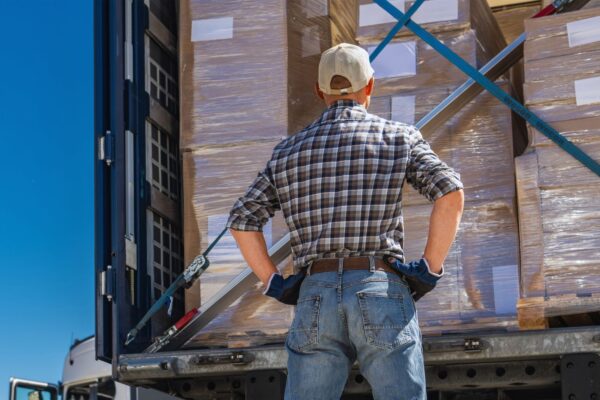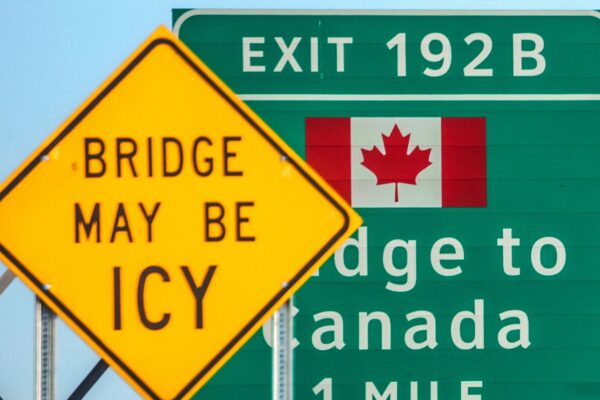

Massive spike in freight fraud, incoming
We urge you to carefully assess your 3PL partners to ensure they’re equipped to neutralize the threat, no matter who they are—us included.
It’s the worst kept secret in the freight industry
Every transportation and logistics company in the country has been targeted by a sophisticated freight fraud scheme—or will be very shortly. In fact, strategic freight theft has already skyrocketed 1,500% since 2021, according to the American Trucking Association.
And as Chinese imports come to a grinding halt at our nation’s ports and financially-strapped drivers struggle to stay afloat, international crime syndicates will come knocking—nudging them for insider info.
Then there’s this:
We’re watching a perfect storm of unchecked international crime, highly sophisticated technology, and financially-strapped American workers roll in—and we expect it to fuel a massive spike in freight fraud.
We’ve got you. Here’s what you need to know.
Vetting a 3PL against the present risk landscape
It’s incredibly difficult to recover stolen freight—it simply isn’t a law enforcement priority. So it’s critical that your valuable loads never fall into the wrong hands in the first place.
What signals indicate a partner that’s up to the task?
A sustainable financial picture
3PLs standing on shaky financial footing are less likely to retain the experienced staff and advanced tech solutions this risky environment demands.
Review the logistics company’s credit ratings to determine their soundness. Look carefully at their payment history, debt-credit scores, outstanding debts, and credit utilization. Dun & Bradstreet is also a great resource. (If a partner’s Paydex score falls under 50, for example, that means they’re at high risk of missing or making late payments.)
Sophisticated carrier vetting tech
Some carrier vetting platforms, like Carrier Assure and MyCarrierPortal, surface red flags in a motor carrier’s history, and that’s key to reducing risk. But it’s not enough anymore—not as scams become more difficult to identify, even by those who’ve been trained to look.
Ask if the 3PL’s tech stack also flags suspicious inbound phone calls and emails. In this day and age, they need a solution that protects against spoofing and phishing attempts.
(Highway is the current industry gold standard.)
Robust data security
Does the 3PL take its data security seriously?
Whether they keep an IT professional on staff or tap a managed service provider, they should embrace these best practices:
- Regularly update systems and applications and implement security patches to mitigate security vulnerabilities
- Leverage advanced data security solutions to prevent attacks and intrusions
- Adhere to a 3-2-1 backup strategy so hacked or encrypted systems can be rolled back: Meaning, maintaining three copies of their data, storing backups on two different media, and keeping one copy offsite (e.g. in the cloud)
- Only give access to systems and applications to the people who need it to do their jobs (it’s called the principle of least privilege)
- Deliver staff data security training on maintaining secure passwords, spotting phishing attacks, and using VPNs
A veteran team
Does the 3PL deliver deep, hands-on experience with your particular transit modes and commodities? Find out.
Some logistics companies use AI to free-up their experienced teams for more value-driven work. Others, however, use AI to slash their labor costs—cutting staff or replacing veteran talent with junior team members. (Expect to see more of this as our supply chain is disrupted.)
And that gut feeling that tells you something’s not quite right? That only comes with careful attention and a wealth of experience.
Rigorous risk mitigation protocols
How seriously does your 3PL take carrier vetting? And how carefully do they verify that the driver who just arrived at your dock is legitimate?
Ask for their SOP. Here’s what you want to see.
Carrier risk assessment
The 3PL should reject carriers who throw red flags:
- Recently changed their contact information
- Have been active for less than six months and haven’t undergone at least one FMCSA inspection
- Own a truck and trailer, maybe two, but have moved freight in every state across the country
Carrier confirmation protocols
Before booking and releasing a load, the 3PL should confirm:
- The phone number and email address provided by the carrier are valid and match the FMCSA-registered authority
- The MC number on the truck that pulls into the yard matches the number provided by the carrier
- The DOT and MC number, license, and carrier liability coverage are both accurate and active
Looking for a logistics partner that takes security seriously?
We’re always scanning the horizon for new threats, so we can stay a step or three ahead. Have questions? Need support? Reach out. We’re here to help.


